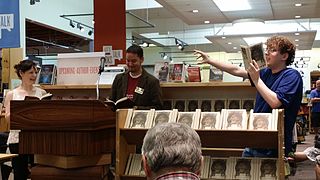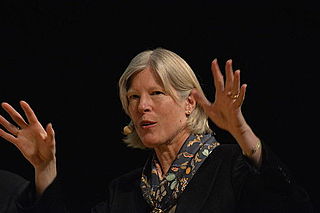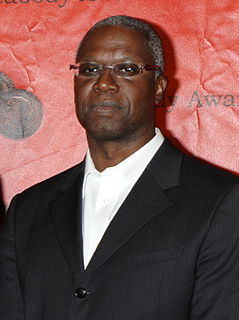A Quote by Stan Lee
You can read a Shakespeare play, but does that mean you wouldn't want to see it on the stage?
Quote Topics
Related Quotes
A lot of people have a fear of Shakespeare. Even actors do. People are like, "Oh, I won't go and see Shakespeare because the language is so hard," but it is. When you read it on the page, you go, "What?! What does that mean?!" If you go to a Shakespeare play and you've never been, you sit there and go, "I'm an idiot! I don't get it!"
If I ever see another Shakespeare production where somebody drives a Jeep on stage, I'm going to run screaming up the aisle. These tend to be matters of design. I mean, we're seeing a lot of - it's very common to see Shakespeare with automatic weapons, things like that. They are clichés. They're new clichés, but they are clichés. And they're provincial. It's not clever to do Henry V, and have everybody dressed in United Nations soldier's costumes anymore. I've seen that one too. That kind of thing irritates me.
What does Macbeth want? What does Shakespeare want? What does Othello want? What does James want? What does Arthur Miller want when he wrote? Those things you incorporate and create in the character, and then you step back and you create it. It always must begin with the point of truth within yourself.
People are going to say, ‘Well, it’s not very truthful.’ But a songwriter doesn’t care about what’s truthful. What he cares about is what should’ve happened, what could’ve happened. That’s its own kind of truth. It’s like people who read Shakespeare plays, but they never see a Shakespeare play. I think they just use his name.
All modesty aside, I think I'm good at reading scripts. The way I read a script is as fast as I can, all in one sitting, and I don't read many of the stage directions. I only read enough stage directions to let me know where I am, because they're always so verbose and mostly horseshit. So I only read the dialogue, which allows me to see the movie in my mind's eye in real time.
Here was a woman about the year 1800 writing without hate, without bitterness, without fear, without protest, without preaching. That was how Shakespeare wrote, I thought, looking at Antony and Cleopatra; and when people compare Shakespeare and Jane Austen, they may mean that the minds of both had consumed all impediments; and for that reason we do not know Jane Austen and we do not know Shakespeare, and for that reason Jane Austen pervades every word that she wrote, and so does Shakespeare.
Sure, kids want to read whatever is the hot book, and of course they want to read fantasy and any kind of speculative fiction, but they also like to read stories with kids that look just like them, that have the same problems as them. And I've noticed that what they particularly want to see is to see those characters prevail. So they don't want sanitized situations. They want stories to be raw, they want them to be gritty, but they also do want to see the hope at the end of the story.





































